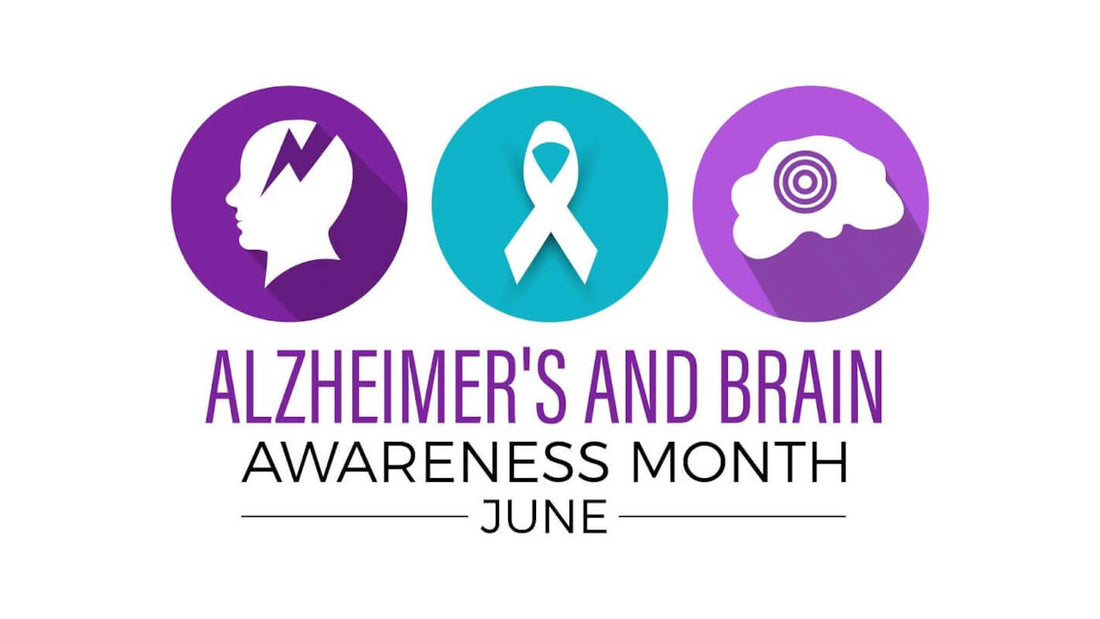While medical science has made leaps and bounds in many areas, there continues to be little understanding of the intricacies of the brain. This extends to conditions that affect our memory, personality, and abilities. More than 55 million people are affected by dementia, which includes Alzheimer’s disease. Every June, the Alzheimer’s Association hosts Alzheimer’s and Brain Awareness Month to help increase action in the push for a cure. In honor of the fight, we’ll help you learn what dementia is, how it affects individuals and families, and how you can take part in Alzheimer’s and Brain Awareness Month.
What Is Dementia?
Dementia is a term used to encapsulate numerous conditions, both known and unknown, that affect cognitive function. A few commonly known types are frontotemporal dementia, Lewy Body dementia, vascular dementia, and Alzheimer’s disease. Each form varies in how it presents itself and the underlying cause, which may not always be known, but there are commonalities in the parts of our bodies or functions that are affected. Dementia can impact memory, attention span, coordination, mobility, speech, and receptive understanding, among other areas. There is no singular way to diagnose these conditions, and many patients never receive a definitive diagnosis. No cure exists for dementia, only a few newer medications that attempt to slow progression or treatments to manage symptoms.
Alzheimer's Awareness Month aims to bring this gap in treatment and awareness to the forefront in an effort to turn the tide.
How Dementia Affects Individuals and Families
With the range of symptoms that dementia causes, everything from mobility to cognition is impacted. Individuals with dementia frequently experience a decrease in their capacity to carry out everyday tasks such as walking, bathing, and dressing.
They may have adverse effects or cognitive decline that prevents them from handling finances and making sound decisions. Functions requiring coordination or balance, such as reaching for objects or bending over to pick up items from the ground, can become challenging. Dementia sufferers may also experience extreme and sudden changes in mood, behavior, and personality traits.
Families face many concerns as these symptoms appear and progress. As the need for care increases, family members have to dedicate additional time, money, and energy into caring for the person. Homes have to be modified with solutions such as residential access ramps to improve accessibility and safety. All this creates a significant emotional toll on both the individual and their loved ones or caregiver, including worries regarding what the future holds.
When Is Alzheimer’s Awareness Month and How Can I Get Involved?
Each year, Alzheimer’s and Brain Awareness Month occurs from the beginning to the end of June. There are several things that you can do to help raise awareness of dementia and promote the search for a cure:
- Share Your Story: Telling others about experiences with dementia helps everyone become better educated. It creates connections to others who are affected and helps to normalize conversations.
- Advocate: Championing for better insurance coverage and improved access to treatment options are significant challenges in caring for individuals with dementia. Your advocacy plays a crucial role in pushing for legislative changes and provisions that can offer caregivers a wide range of resources, from medications to therapies.
- Fundraise: Research is the greatest barrier to finding a cure for dementia. Thorough studies take years and extraordinary amounts of money. Helping to raise funds for research institutions to further their progress is one of the greatest gifts you can give for Alzheimer's Disease Awareness Month.

